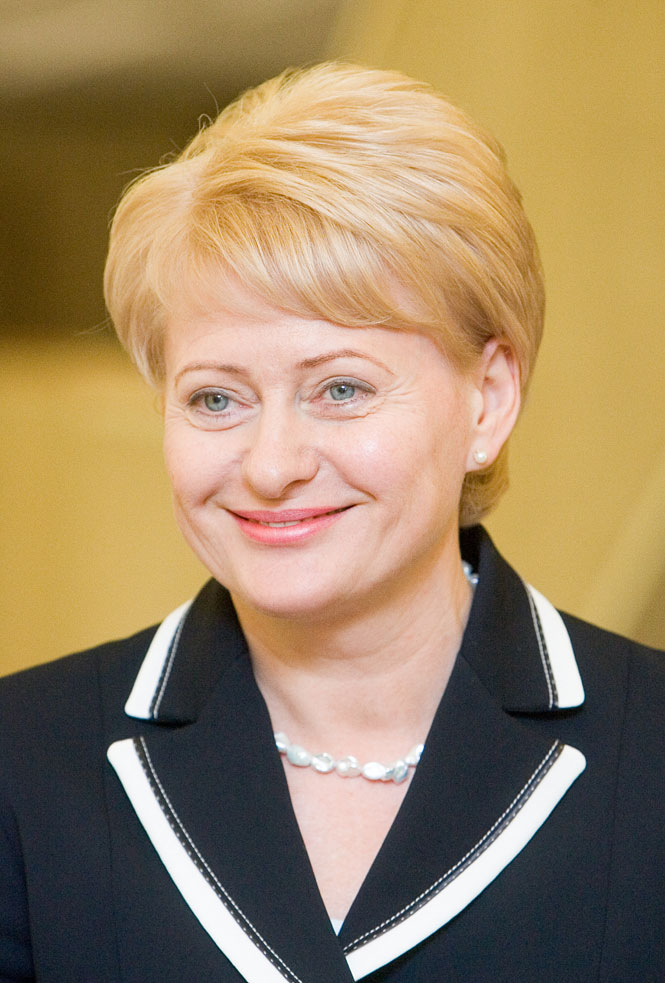- 2013/07/23
President Dalia Grybauskaitė and the Polish issue

 The European Foundation of Human Rights watches the recent political activities of Dalia Grybauskaitė, the President of the Republic of Lithuania, in disbelief and with a sense of genuine disappointment. In her speeches and addresses delivered in front of the Sejmas, the President brings up the so-called Polish issues, which have now become synonymous with the issues important to Polish minorities in Lithuania, including the most controversial ones such as the standardised exam in the Lithuanian language and the legal regulation of the spelling of Polish surnames.
The European Foundation of Human Rights watches the recent political activities of Dalia Grybauskaitė, the President of the Republic of Lithuania, in disbelief and with a sense of genuine disappointment. In her speeches and addresses delivered in front of the Sejmas, the President brings up the so-called Polish issues, which have now become synonymous with the issues important to Polish minorities in Lithuania, including the most controversial ones such as the standardised exam in the Lithuanian language and the legal regulation of the spelling of Polish surnames.
In order to achieve her political aims, Mrs President takes advantage of ethnic and patriotic issues. This undermines democracy and leads to social divisions. Although Mrs President claims that she is not ill-disposed towards national minorities, she openly announces that she will block up most of the postulates presented by representatives of the minorities. A president of a democratic country is obliged to take a neutral position. A head of a state can neither openly support nor reject the position of any political party, which is specified in the Presidency Act of the Republic of Lithuania from 1993.
Mrs President’s speech for the judicature, which a day before had started to examine the case concerning the exam in the Lithuanian language, can be treated as a sort of an attempt of persuasion and pressure. The independence and impartiality of the judicature could have been shaken by a person who has appealed for them. According to Dalia Grybauskaitė, the exam in Lithuanian has naturally become a political hostage.
As it turned out later (on June 18, 2013), the same court ruled that the proposed postulates concerning preferential treatment during the exam are not consistent with the Constitution of the Republic of Lithuania and therefore turned them down with irrevocable verdict. The opposition stated that their future activities would depend first of all on the scores of this year’s high school graduates taking the exam and that the court ruling is “an infraction of the basic citizen rights.” The opposition also announces that they will seek other ways and possibilities of improving the current situation of people taking the exam in Lithuanian in schools of national minorities.
The Framework Convention for the Protection of National Minorities is legally binding for the whole state and it also has to be considered while passing various decrees and regulations, especially the ones directly relating to national minorities. The position taken by the President of the Republic of Lithuania, who, attesting under oath to be president, pledged to represent both the Lithuanian nation and state, in her public speeches presents only her subjective opinions and does not respect any international documents. This results in disputes between the camps representing different values. This also compromises the President as the head of the state who cannot conform to the documents defining her position in the state. This in turn compromises Lithuania on the international arena as a state that does not observe any basic European values.
The European Foundation of Human Rights condemns the political attitude of the President, whose values are a far cry from those that should beacon politicians, especially the heads of states.
EFHR
Source:
Translated by Elwira Łykus within the framework of a traineeship programme of the European Foundation of Human Rights, www.efhr.eu.



